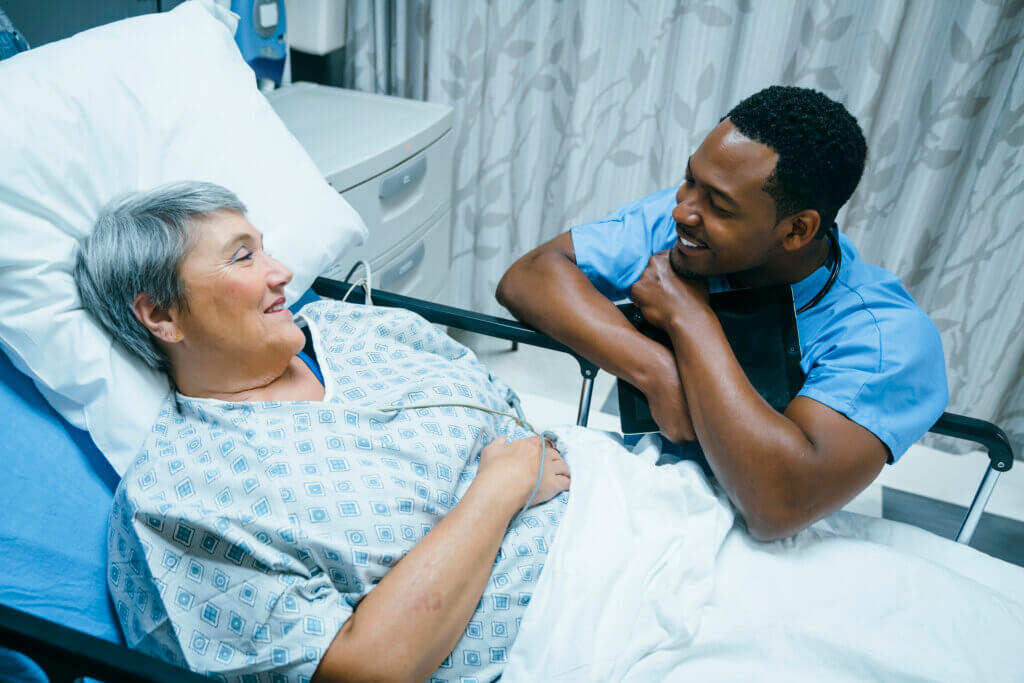What you need to know about ambulatory surgery centers
These outpatient care centers can be a safe, effective, and more affordable alternative to a traditional hospital. We have answers to some of your top questions.

If your doctor has referred you or a loved one to an ambulatory surgery center (ASC) for a procedure for the first time, you might have more than a few questions. What is an ASC? Is it like a regular hospital visit? Will it cost more? And most importantly, what kind of results should I expect?
In truth, procedures done at ASCs tend to have the same results as the same procedures performed at traditional hospitals (or even better). But it’s important to understand what to expect before heading in. Here are 6 facts you need to know about ambulatory surgery centers.
1. What is an ambulatory surgery center?
ASCs are stand-alone healthcare facilities. They usually offer outpatient surgeries or preventive screenings such as colonoscopies. In other words, they offer procedures where a patient doesn’t need to stay overnight. Operations at ASCs can include everything from cataract surgery and gallbladder removal to repairing knees, shoulders, and other joints.
Need help scheduling a procedure? Ask your health plan if you are eligible for the Wellframe app. Your care advocate can help set up your appointment and answer your questions.
2. How common are procedures in ambulatory surgery centers?
Today, most surgeries in the United States (around 70%) are considered outpatient. That means you go home shortly after your operation. After inpatient surgery, you stay in the hospital for at least one night.
While hospitals have outpatient surgery facilities, there are also a growing number of ASCs that offer the same types of procedures. Just over 40% of all surgical procedures happen at ASCs, according to the 2020 Ambulatory Surgery Center Market Report. And by the mid-2020s, they are expected to perform 68% of orthopedic surgeries.
3. Is the care at the same level you’d get at a traditional hospital?
ASCs work just like hospital outpatient services. They must follow the same laws, rules, and regulations set by state and federal governments. They are also accredited by major independent healthcare rating agencies.
Patient safety is also just as important at ASCs. Large studies have found that patients at ASCs have low complication rates. And results at ASCs are similar to those at hospitals. Sometimes they’re even better. One study, for example, compared patients who’d had the same procedure done at either an ASC or a hospital outpatient department. It found that the ASC patients were less likely to visit an emergency room or be admitted to the hospital on the same day as the procedure. The same was true 7 days and 30 days later.
4. Do ASCs cost more than hospital visits?
A Healthcare Bluebook and HealthSmart report estimates that ASCs save the U.S. healthcare system $38 billion a year. And $5 billion of it is savings to patients. The savings come in the form of lower deductibles and coinsurance payments. As a bonus, you may also find it easier to schedule your procedure without a long wait at an ASC.
5. Is there anything I need to do to prepare for my ASC visit?
Preparing for a procedure at an ASC isn’t much different than prepping for one at a hospital. Talk with your doctor about what to expect during and after the procedure. Some questions you might ask: Will there be pain I’ll need to manage? Will I need physical therapy or other assistance? Having answers to these questions can help you arrange for what you need before your surgery. That way you won’t have to worry about it while you heal.
In the hours or days before your surgery, you may have to stop eating and drinking at a certain time. That’s to help stop you from becoming nauseous or inhaling food into your lungs during the procedure.
When you head to the center, be sure to bring:
- Your photo ID.
- Your health insurance card.
- A list of your allergies.
- A list of any medications you take.
This will help make sure you aren’t given any medications you’re allergic to. Also, the surgeon will be aware of anything that might interact with your anesthesia.
You might also want to ask a trusted friend or relative to come with you and drive you home. This person should also be there when the doctor or nurse gives you instructions about your recovery at home. They can take notes to share with you later. (You may be groggy from anesthesia or other medications.)
6. What does recovery look like following a procedure at an ASC?
Your recovery at an ASC will be similar to what you’d get at an outpatient hospital visit. Once your procedure is done, you’ll be taken to a recovery room to rest. How long you stay depends on the kind of procedure you had.
A nurse or staff member will give you instructions. They’ll tell you what to expect now that the surgery is over, including how to take care of yourself at home. They may also prescribe medication for you to take. Before you leave, it’s smart to ask whom you can call if you have questions before your next medical appointment.
It’s important to understand when you need to see your surgeon again. These follow-up appointments are key to making sure you’re recovering on schedule and haven’t developed any complications. Also, be sure you know what to do if you have any signs of complications, such as:
- Bleeding.
- Fever.
- Serious pain.
- Vomiting.
- Trouble urinating.
These are some common symptoms of surgery complications:
- Shock. This is a sudden drop in blood flow through the body.
- Hemorrhage. This is bleeding from a damaged blood vessel.
- An infected wound.
The Bottom Line
What do you need to know about ambulatory surgery centers? Many medical procedures can be done safely and quickly in an ASC. If your doctor recommends one, they can be a more cost-effective and convenient solution than having surgery done at an outpatient hospital clinic.
Sources
- “2020 Ambulatory Surgery Center Market Report.” ResearchAndMarkets.com, October 21, 2020, https://finance.yahoo.com/news/2020-ambulatory-surgery-center-market-103300647.html. Accessed February 14, 2022.
- Munnich EL and Parente ST. “Returns to Specialization: Evidence from the Outpatient Surgery Market.” Journal of Health Economics, vol. 57, January 2018, pp: 147-167.
- “ASCs vs. HOPDs: 12 Insights on the Federal Reimbursement Gap.” Becker’s ASC Review, October 12, 2021, https://www.beckersasc.com/asc-news/ascs-vs-hopds-12-insights-on-the-federal-reimbursement-gap.html. Accessed February 14, 2022.
